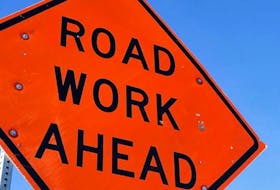The idea of taxing people who choose not to get vaccinated against COVID-19 received a cool reaction from most participants during an online panel Friday.
The province of Quebec announced Jan. 11 it would impose a “significant” tax penalty on people who refuse to get vaccinated.
The province has struggled with surging COVID-19 hospitalizations and the province's relatively small unvaccinated population has represented disproportionately among the hospitalized.
During a panel organized by Dalhousie University's MacEachen Institute for Public Policy and Governance, only one participant leaned toward the tax as something that even should be considered. The panel was held in collaboration with the Canadian Center for Vaccinology and the Health Law Institute at Dalhousie University.

Quebec hit hard
Colleen Flood, research chair in health law and policy at the University of Ottawa, said Quebecers - particularly more vulnerable racialized populations - have been hit hard by COVID-19. Quebec's death rate related to the virus is 141 per 100,000 people, compared to the Canadian average of 81 per 100,000.
“Hospitals have been strained beyond belief. Half of the beds are occupied by the unvaccinated even though they’re just 10 per cent of the population,” Flood said. “The dangers they’re facing must be considered.”
She said ethicists too often focus on the impact of public health decisions on the general population.
“We’re very good at condemning policy options and talking about rights of those affected but not very often about the other side of the ledger. The numbers on the other side, the people who are dying and being impacted by COVID 19, these people, they matter as well and we have to consider both of these interests.”
Flood said while this kind of taxing scheme may not be effective or practical, she doesn't believe it contravenes Canada's Healt Act or our charter of rights because the charter doesn't generally protect economic rights.

Unfairly punitive
Infectious disease specialist Dr. Lisa Barrett said the tax would be unfairly punitive and the benefits marginal at this point in the pandemic.
“If we get four per cent more people vaccinated over the next eight weeks,” said Barrett, who questioned whether a tax would in fact incentivize that many people, “is that actually going to make a significant difference to … the most vulnerable people who are the folks who end up the most significantly … disadvantaged by COVID-19?
“It may well negatively impact long-term vaccination rates and the ability of people to see vaccination as a viable option for them in the future, if they were 'taxed' into it right now.”

A better approach would be positive incentives to get vaccinated, instead of penalizing people, said Dr. Gaynor-Watson Creed, assistant dean of serving and engaging society at the Dalhousie medical school and a former deputy chief medical officer of health in Nova Scotia.
“Can we actually provide people with some kind of remuneration, food vouchers, whatever might be of interest to the populations at hand to come forward for vaccines?” she said. “Those same populations that are disproportionately affected by the (pandemic) have also been disproportionately affected by punitive measures from the state.”
Françoise Baylis, a bioethicist at Dalhousie’s medical school, said she’s troubled by the conversation in Quebec about taxing the unvaccinated because it doesn’t stand up to basic public health principles.
“We see a long list of reasons on why people avoid vaccines that have nothing to do with their fear of vaccine and their fear of being harmed by the vaccine,” she said.
“They include things like if I feel like I’m being told this instead of being asked to engage in it, that has got my back up and I don’t want to participate in it. … A vax tax is not going to decrease the suspicion that … some people in Canada have of the Canadian government. Quite the opposite, I think it’s going to increase their suspicion.”









